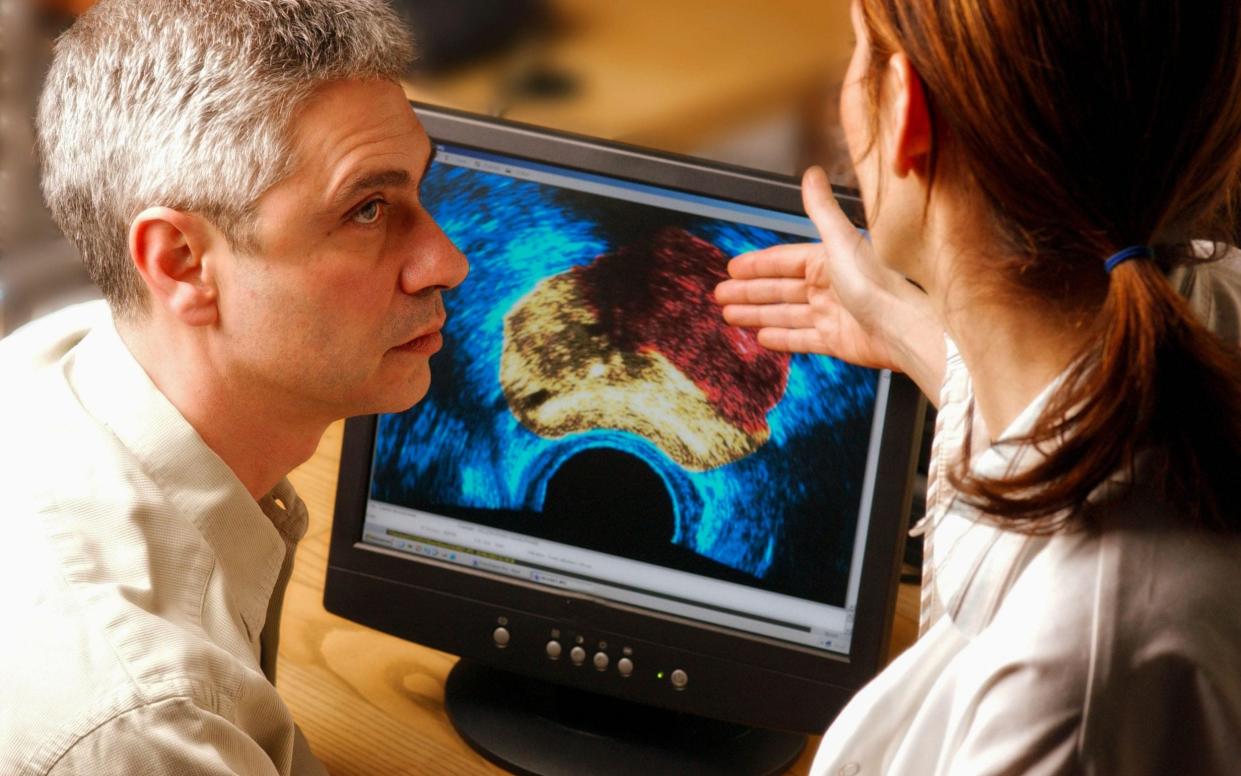Prostate cancer screening ‘may do more harm than good’, study shows

Prostate cancer screening is likely to do more harm than good, experts have warned, after a 15-year trial showed one in six flagged cases was wrong.
The largest study to date investigating the PSA (Prostate-specific antigen) blood test, which is used as a screening tool in some European countries, found it had a small impact on reducing deaths, but also led to a worrying level of overdiagnosis.
In some cases, it missed early detection of some aggressive cancers.
Researchers from the universities of Bristol, Oxford and Cambridge, invited more than 400,000 men aged between 50-69 for screening, with just over half receiving a PSA test.
After following up for 15 years, nearly seven men out of every 1,000 in the group invited for screening had died from prostate cancer, compared to nearly eight men out of every 1,000 who had not been tested.
The results of the trial show that an estimated one in six cancers found by the single PSA screening were overdiagnosed leading to unnecessary treatment of tumours that would not have caused any harm in someone’s lifetime
The treatment of prostate cancer may cause physical side effects including the possibility of infection following a biopsy, erectile dysfunction, and bladder and bowel problems.
Professor Richard Martin, lead author and Cancer Research UK scientist at the University of Bristol, said: “The key takeaway is that the small reduction in prostate cancer deaths by using the test to screen healthy men does not outweigh the potential harms.
‘Some men have treatment they don’t need’
“This results in some men going on to have invasive treatment that they don’t need, many years earlier than without screening, and the test is also failing to spot some cancers that do need to be treated.
“We need to find better ways to spot aggressive prostate cancers, so we can treat them early.”
Prostate cancer is the second-biggest cancer killer of men in the UK, causing 12,000 deaths a year.
It is the most common cancer in the UK without a screening programme, despite the fact that it usually has no symptoms until it has spread and become incurable.
The UK National Screening Committee (NSC), which reviews the evidence for screening programmes, does not currently recommend screening for prostate cancer because it is unclear that the benefits outweigh the harms.
Dr Neil Smith, GP for Cancer Research UK and GP Lead for Lancashire and South Cumbria Cancer Alliance, said: “With prostate cancer causing 12,000 deaths in the UK every year, we completely understand why men want to know if they have the disease, even when they don’t have symptoms.
“However, this research highlights that a PSA test for early detection can do more harm than good – it’s simply not accurate enough and can lead to some men having tests and treatment that they don’t need.

“You know your body best – so if you do notice any unusual changes, contact your GP. It probably won’t be cancer, but if it is, then spotting it earlier means that treatment is more likely to be successful.”
Early prostate cancer usually has no symptoms so early detection is challenging.
Last year Prostate Cancer UK launched the £42m Transform trial, which will study hundreds of thousands of men, to see if MRI scans can do a better job at picking up disease early.
Other research, such as the Stampede trial, is aiming to find the best treatment for men with advanced prostate cancer to further improve survival and quality of life.
Dr Matthew Hobbs, Director of Research at Prostate Cancer UK, said: “A previous trial showed that screening with PSA blood tests does reduce deaths from prostate cancer but that it also misses important cancers and harms men who are given treatments or biopsies they don’t need.
“The results from the UK CaP trial are extremely significant, because they back up these findings.
“The number of men screened who still died of prostate cancer in both trials makes crystal clear that the imperative now is to develop, test, and prove new ways to diagnose prostate cancer that detect those aggressive cancers missed by PSA tests and reduce potential harm even further.”
In a separate study, researchers found that cutting the length of MRI scans for prostate cancer by a third would make them cheaper and more accessible without hindering accuracy.
Clinicians offer patients suspected of having prostate cancer an MRI scan, which is carried out in three stages.
The final step involves the patient being injected with contrast dye, which helps to enhance the images from the scan.
Removing this stage would lower costs and ensure MRIs are offered to more men, researchers from University College London (UCL) and University College London Hospitals NHS Foundation Trust said.
But they warned it is “vital” that the scans “are of optimal diagnostic quality” if this approach is to be taken.

